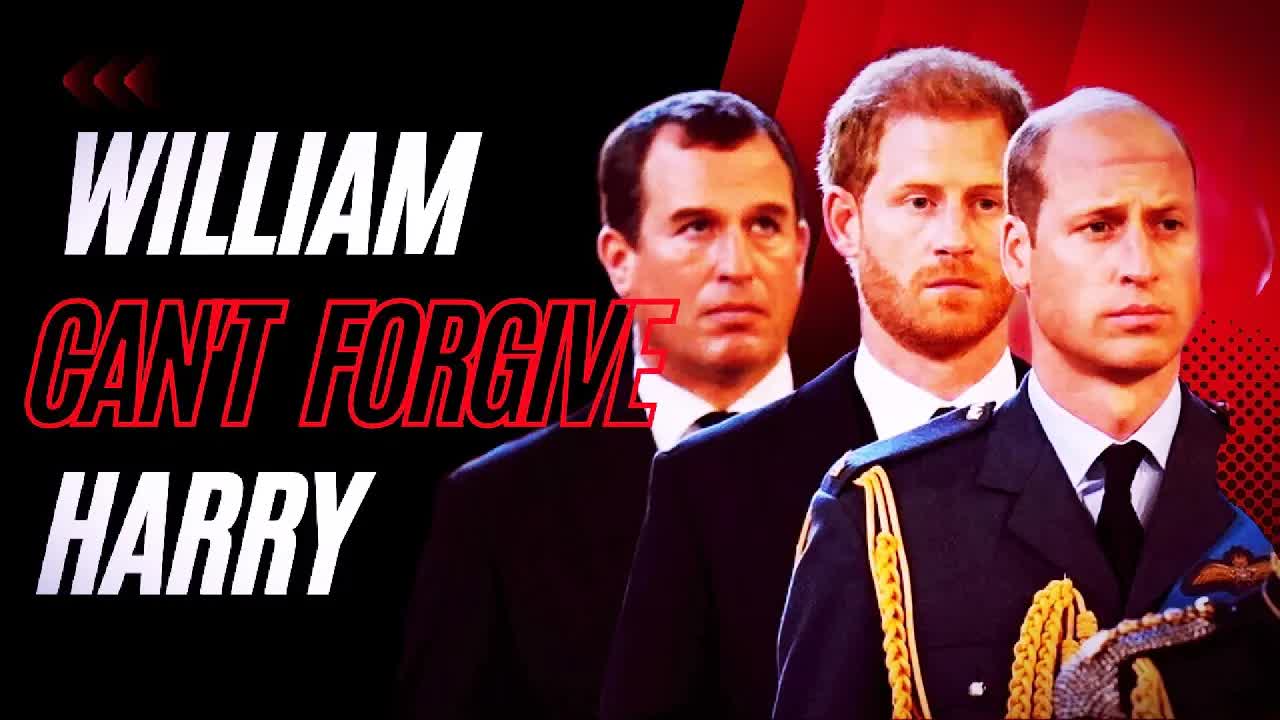In the wake of Queen Elizabeth II’s passing, the royal family finds itself grappling not only with grief but also with a significant rift that has emerged, particularly between Prince Harry and his brother, Prince William.
As the dust settles from the funeral proceedings, discussions surrounding forgiveness, familial loyalty, and public perception have taken center stage.
The controversy surrounding Prince Harry’s visit to the Queen during her final moments has sparked debates about who should have been present at such a pivotal time.
It was reported that Meghan Markle‘s attendance was a contentious issue, leading to negotiations that ultimately excluded her.
Critics argue that this decision reflects a deeper familial divide, as those closest to the Queen felt it essential to maintain the sanctity of her last moments by limiting access to immediate family members.
One commentator noted that while Meghan may have married into the royal family, her relationship with them is not as deep-rooted as that of blood relatives.
This sentiment raises questions about the nature of belonging and the expectations placed on individuals who marry into prominent families.
Should the emotional weight of such moments be reserved solely for those with familial ties?
A striking aspect of this situation is the perception of racial dynamics.
Some argue that Meghan’s experiences of alleged racism are overstated, suggesting that her ability to navigate life as a biracial woman allowed her to pass in predominantly white spaces.
This perspective challenges the narrative that racism played a central role in her treatment by the royal family, leading to further discussions about identity and representation.
Forgiveness, a theme often associated with the late Queen, has become a focal point in the ongoing family drama.
Observers have noted that both Harry and Meghan have received forgiveness multiple times from the royal family, yet the question remains: are they willing to extend the same grace to their own families?
The idea of mutual forgiveness seems crucial for any hope of reconciliation, especially considering the emotional toll this rift has taken on all involved.
William’s hurt over his brother’s actions is palpable.
Royal experts reveal that he struggles to find a path towards forgiveness, feeling deeply affected by the turmoil caused by Harry and Meghan.
The notion that forgiveness must be accompanied by a genuine change in behavior resonates strongly, suggesting that without accountability, healing may remain elusive.
As the anticipation builds for Harry’s upcoming book release, many speculate that it may reignite tensions within the family.
Reports indicate that the content could include critical remarks about Camilla, the Queen Consort, which may further complicate the already strained relationships.
The public is left wondering whether this book will serve as a catalyst for healing or a further wedge between the brothers.
The media frenzy surrounding Harry and Meghan’s story has often overshadowed their actions, painting them as perpetual victims rather than acknowledging their role in the unfolding drama.
This narrative can be problematic, as it obscures the complexities of their choices and the consequences that have arisen from them.
Catherine, Princess of Wales, stands in stark contrast to the ongoing turmoil.
Her approach to royal duties has garnered admiration and respect, highlighting the importance of stability and tradition within the monarchy.
While Harry and Meghan’s narrative leans heavily on controversy, Catherine’s commitment to her role exemplifies a different path—one rooted in duty and decorum.
As discussions continue about the impact of the Sussexes on the Queen’s health and well-being, many believe that the stress stemming from their actions contributed to her decline.
Royal insiders suggest that the Queen’s attempts to mediate the rift between her grandsons took an emotional toll, leaving her exhausted in her final years.
Amidst calls for mediation between Harry and King Charles, some question whether such an approach is appropriate given the circumstances.
Critics argue that the need for a mediator implies a lack of accountability from Harry and Meghan, who must first acknowledge their part in the family discord before seeking resolution.
Ultimately, the saga surrounding the royal family serves as a stark reminder of the complexities of forgiveness, loyalty, and the weight of public scrutiny.
As the world watches, the question lingers: can the bonds of family withstand the pressures of fame, fortune, and personal grievances?
Only time will tell if healing can occur or if this rift will continue to define the royal narrative for years to come.










